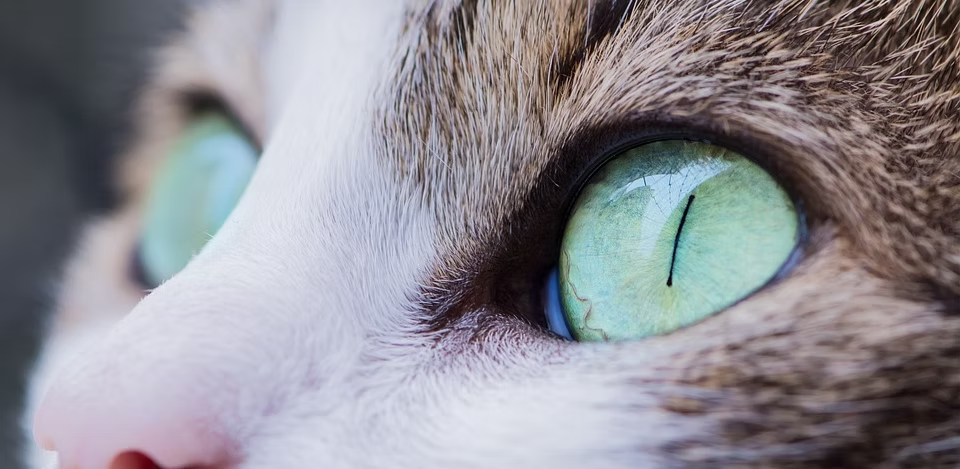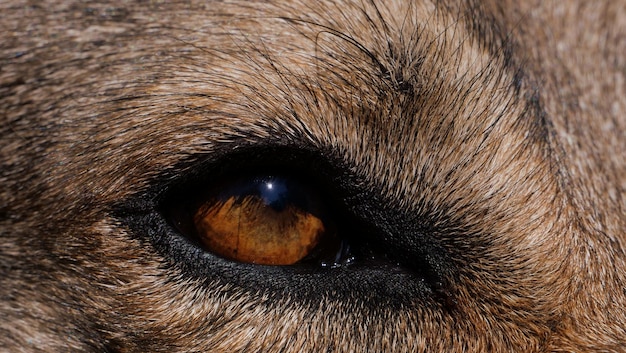Identifying Subtle Signs of Ocular Disease in Pets


Identifying Subtle Signs of Ocular Disease in Pets
As a pet owner, you know your dog or cat better than anyone else. When your pet’s eyes change in appearance or behavior, even slightly, it can be worrying—especially if you fear they might be experiencing an eye problem that could affect their comfort or vision. At Animal Eye Specialists, located at 1545 W Plano Pkwy, Plano, TX 75075, we understand how important it is to catch the earliest signs of ocular disease in pets. Our board-certified veterinary ophthalmologist provides thorough, gentle care for pets across Plano and surrounding communities.
This blog will help you recognize the subtle symptoms of eye disease in your pet, explore what causes these conditions, and explain how a pet eye specialist can diagnose and treat ocular disease. Early intervention is crucial in preventing vision loss, so if you ever find yourself searching for a "specialist vet near me" or "pet eye specialist Plano," know that prompt attention can make all the difference. We will also discuss when to seek the expertise of a veterinary ophthalmologist, and how you can support your pet’s eye health at home. For more details on recognizing warning signs, you can also visit our guidance for pet owners on recognizing signs of eye disease in pets page.
Recognizing the Early Signs of Ocular Disease in Pets
Subtle Changes to Watch For
Ocular disease in pets often begins with small changes that may be easy to overlook. Key symptoms include slight redness of the eye, increased tearing, or a change in the clarity of the cornea. You might notice your pet squinting, pawing at their face, or shying away from bright lights. Other signs are persistent eye discharge, a cloudy or bluish appearance to the eye surface, or a sudden reluctance to play or navigate familiar spaces.
Pets can sometimes develop more obvious symptoms like swelling around the eyelids, visible third eyelid, or even a pronounced bulge of the eye, but these often appear only after the disease has progressed. Subtle behavioral changes can also be a clue; for instance, a normally energetic dog becoming hesitant on walks, or a cat misjudging jumps. These minor shifts might indicate vision changes or discomfort.
If you have noticed your pet bumping into furniture, having trouble locating toys, or displaying any change in their normal eye appearance, it is important to consider that an ocular disease might be developing. Recognizing these early signs and seeking help from a pet eye specialist in Plano can be the difference between successful treatment and permanent vision changes.
Why Early Detection Matters
When eye problems are caught in their earliest stages, many conditions can be managed or even reversed. By the time dramatic changes appear, damage may be more advanced. A board-certified veterinary ophthalmologist is trained to identify these subtle signs and determine if advanced diagnostic testing, such as direct and indirect ophthalmoscopy or slit lamp examination, is necessary. These specialized tools allow for a complete evaluation, even when changes are nearly invisible to the naked eye.
Understanding the Causes of Ocular Disease in Pets
Common Conditions Leading to Eye Problems
Ocular disease in pets can be caused by a variety of underlying issues. Common causes include inherited conditions such as cataracts or retinal degeneration, infections from bacteria or viruses, trauma to the eye, and immune-mediated diseases. Additionally, aging pets may develop lens or corneal changes similar to those seen in people. Certain breeds are more prone to specific eye conditions; for example, brachycephalic dogs (like Shih Tzus and Pugs) and flat-faced cats (such as Persians) often experience corneal problems due to their eye structure.
Environmental factors in Plano and surrounding communities, such as high pollen counts or dry, windy weather, can also contribute to eye irritation and the development of chronic eye problems. Untreated dental disease, systemic illnesses like diabetes, and even some medications may increase the risk of ocular disease in pets.
How Veterinary Ophthalmologists Diagnose Ocular Disease
Diagnosis begins with a thorough history and a detailed ophthalmic examination. At Animal Eye Specialists, every patient receives a complete eye exam from a board-certified veterinary ophthalmologist. Diagnostic tests may include tonometry (intraocular pressure testing) to check for glaucoma, fluorescein staining to identify corneal ulcers, and advanced imaging such as ocular ultrasonography for hidden abnormalities. When a chronic or complex issue is suspected, we may perform specialized tests or refer to our diagnosis and treatment of chronic eye conditions in pets service for ongoing management.
Treatment Options from a Pet Eye Specialist in Plano
Modern Approaches to Managing Ocular Disease
Once a diagnosis is made, treatment options are tailored to your pet’s specific condition. Veterinary ophthalmologists use a wide range of advanced therapies, including medical management with topical or oral medications, surgical procedures, and cutting-edge technology. For example, cataracts may be addressed with cataract surgery using phacoemulsification and intraocular lens implantation, restoring vision in many cases.
Other treatment approaches involve corneal repair for ulcers or injuries, eyelid reconstruction for congenital or acquired defects, and enucleation (eye removal) as a last resort in cases of severe pain or untreatable disease. Chronic conditions such as dry eye or glaucoma require ongoing management and regular follow-up with a pet eye specialist in Plano to preserve comfort and vision.
Our veterinary team always considers your pet’s temperament, medical history, and lifestyle when recommending treatment. By maintaining ongoing communication with your primary veterinarian, we ensure that your pet receives coordinated care for both their eye condition and overall health.
What to Expect During Treatment
Treatment and management plans are highly individualized. Some pets may need only a short course of medicated drops, while others require surgery and regular follow-up appointments. Our goal is to provide clear explanations and support at every step, helping you understand the purpose of each medication or procedure. For complicated and challenging cases, our management of complex and challenging eye problems in pets service ensures your pet receives the most advanced care available from a "specialist veterinarian near me."
Home Care and Preventive Steps for Your Pet’s Ocular Health
Daily Habits That Support Healthy Eyes
Maintaining your pet’s eye health at home involves regular observation and gentle care. Steps include keeping the hair around the eyes trimmed, cleaning any discharge with a damp cloth, and avoiding the use of over-the-counter eye medications unless prescribed by a veterinarian. Monitoring changes in your pet’s behavior or vision can help you catch problems early. Preventing trauma is also important; avoid letting your dog stick its head out of car windows, and keep chemicals, sharp objects, and potential irritants away from your pet’s environment.
For breeds at higher risk of ocular disease, consider regular check-ups with a veterinary ophthalmologist. If you have questions about conditions common in your pet’s breed, our team is here to provide education and guidance. For additional resources and tips, you can visit our educational information for pet owners about eye diseases and care.
The Role of Professional Preventive Eye Care
Periodic eye exams performed by your primary veterinarian are essential, but pets with risk factors, chronic diseases, or subtle symptoms may benefit from consulting a pet eye specialist in Plano. Regular professional evaluation allows for early detection of changes that may not be visible at home, enabling prompt intervention and better outcomes.
When to Seek Care from a Pet Eye Specialist
Signs That Require Immediate Veterinary Attention
Certain symptoms indicate the need to seek veterinary ophthalmology care without delay. Warning signs to watch for are sudden vision loss, severe redness or swelling, persistent squinting, or the presence of blood or pus in the eye. If your pet is experiencing pain, is unable to open the eye, or has suffered trauma to the head or face, emergency evaluation by a pet eye specialist is critical. In these situations, waiting can result in irreversible damage.
If you are searching for a "specialist vet near me" or "pet eye specialist Plano," Animal Eye Specialists is equipped with advanced diagnostic and surgical capabilities to address urgent ocular issues. We accept referrals from primary care veterinarians and are dedicated to providing the highest standard of specialty eye care in Plano and surrounding communities. Remember that even subtle signs, especially in older pets or those with chronic health problems, warrant professional assessment.
How to Prepare for Your Pet’s Ophthalmology Appointment
Gather any relevant medical records, note the timeline of your pet’s symptoms, and bring a list of any medications or supplements your pet is currently taking. Clear communication with your veterinary team helps ensure the most accurate diagnosis and effective treatment.
If you have more questions about what to expect, our frequently asked questions about pet ophthalmology and eye health page can provide helpful information.
Conclusion: Take Action for Your Pet’s Eye Health Today
Subtle changes in your pet’s eyes or vision should never be ignored. Early detection and intervention are the keys to successful management of ocular disease in pets, protecting your pet’s comfort and quality of life. Animal Eye Specialists is proud to serve Plano and surrounding communities as the trusted "specialist veterinarian near me" for all aspects of pet eye health.
If you have noticed any changes in your pet’s eyes, or if you simply want peace of mind from a professional evaluation, we encourage you to contact our veterinary team today. Our board-certified ophthalmologist will perform a complete examination and recommend the best course of action for your pet. To learn more about our advanced diagnostic capabilities, you can explore our detailed diagnostic evaluation of the eye's anterior segment service.
Protect your pet’s vision by partnering with a pet eye specialist in Plano who understands the importance of compassionate, individualized care. Schedule an appointment at Animal Eye Specialists by calling (972) 845-9948 or visit us at 1545 W Plano Pkwy, Plano, TX 75075. When it comes to your pet’s eyes, early action is the best way to ensure a bright and comfortable future.

















